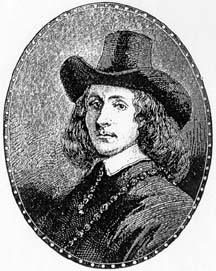 W
WJames Blair was a clergyman in the Church of England. He was also a missionary and an educator, best known as the founder of the College of William & Mary in Williamsburg, Virginia.
 W
WJames Craik was Physician General of the United States Army, as well as George Washington's personal physician and close friend.
 W
WAndrew Hamilton was a Scottish lawyer in the Thirteen Colonies, where he finally settled in Philadelphia. He was best known for his legal victory on behalf of the printer and newspaper publisher John Peter Zenger. His involvement with the 1735 decision in New York helped to establish that truth is a defense to an accusation of libel. His eloquent defense concluded with saying that the press has "a liberty both of exposing and opposing tyrannical power by speaking and writing truth."
 W
WWilliam Kidd, also known as Captain William Kidd or simply Captain Kidd, was a Scottish sailor who was tried and executed for piracy after returning from a voyage to the Indian Ocean. Some modern historians, for example Sir Cornelius Neale Dalton, deem his piratical reputation unjust.
 W
WRobert Livingston the Elder was a New York colonial official, fur trader, and businessman; he was granted a patent to 160,000 acres along the Hudson River, and became the first lord of Livingston Manor.
 W
WRobert Livingston the Younger, sometimes known as Robert Livingston, Jr., or The Nephew was a wealthy merchant and political figure in colonial Albany, New York.
 W
WDavid Thompson (1593–1628) was the first non-native settler of New Hampshire and the namesake of Thompson Island in Boston Harbor. He may have been a descendant of Sir Thomas Stewart, Master of Mar.
 W
WAlexander Wilson was a Scottish-American poet, ornithologist, naturalist, and illustrator. Identified by George Ord as the "Father of American Ornithology", Wilson is regarded as the greatest American ornithologist prior to Audubon.